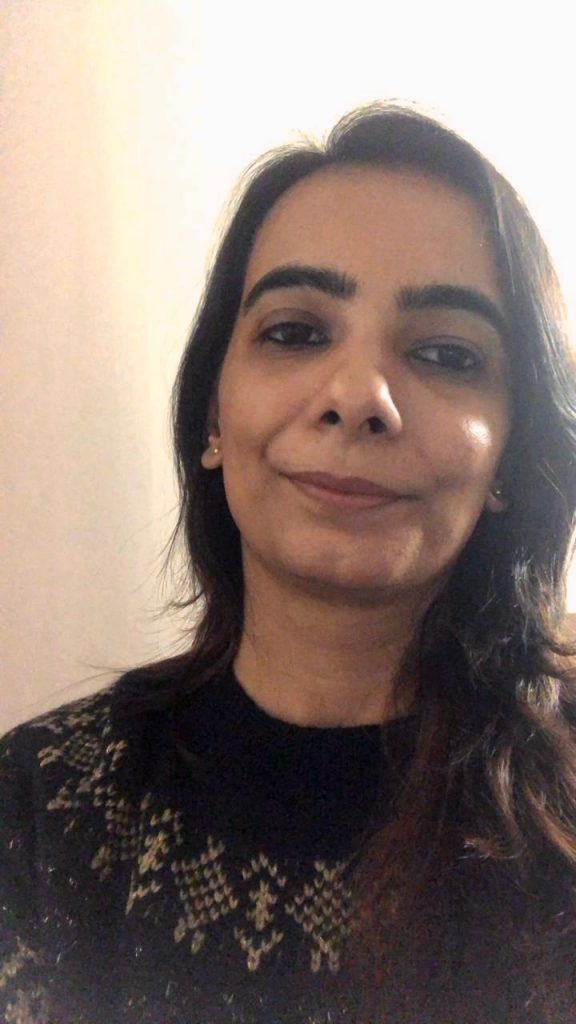This event was hosted on behalf of the City Law School in collaboration with the Association of Women Barristers which is chaired by City’s Lynne Townley, and Chamali Fernandes for the Society of Asian Lawyers. The evening focused on developing a legal career internationally but also on issues about equality, inclusion and mentoring. City LLM student Tamanna Arora reports…
I had been pretty excited about the event, as I knew that there would be a great deal to take away due to the range of interesting speakers present. It was fantastic to be at an event in the company of so many attendees from other London universities and legal practitioners too.
Panelists included Professor Christine Goodman from Pepperdine University Malibu, California, Shivani Jegarajah, a renowned Human Rights Barrister from Justicia Chambers, Anesta Weekes QC (specialist in International Crime) of 33 Bedford Row and Richard Clayton QC (an International Commercial Litigation and Arbitration Specialist).

I was personally eager to be hearing from Shivani Jegarajah as I am a student in Human Rights.
Each panelist shared important tips on developing and shaping your legal career internationally. Shivani Jegarajah talked about ‘freedom from fear’- the importance of taking the initiative and making contacts without being fearful or hesitant! And, went on to explaining about how she had always worked as an activist and how she kicked off her international legal career by attending one UNHRC session.
Jegarajah described her anger and frustration politically, regarding the case of the Sri Lankan Government being prosecuted for war crimes, which drove her to want to go to the UN. She found out that the UN sits every year and have sessions on every country and on every issue. She noted the importance of getting the NGOs to back you so that you can get the security pass, attend those sessions, talk to people. She reflected on how later, she didn’t just attend but spoke on the Panels. Jegarajah also noted how anyone can write a report to the UNHRC on the ‘niche area’ or ‘problem’ that they are interested in and would also like to contribute to and how, sometimes, the UN could invite them to work with them or to be a part of the process. Cast aside any notion that you need to do anything formally – she further explained by she also mentioned about networking through LinkedIn.
Both she and Professor Goodman talked about the importance of mentoring and support network; how to find them and keep them going. Need, Niche and Network were the three key points emphasised by Professor Chris Goodman; she explained this as finding and focusing on the area of your interest, rather being too scattered. She also flagged up organisations like IANGEL– International Action Network for Gender Equity and Law, where one could start networking by taking up pro-bono work.

The two practitioners (Anesta Weekes QC and Richard Clayton QC) focused on how you build connections and obtain work outside your home jurisdiction. This also involved consideration about whether and how to be called at foreign bars. There were financial implications to this and consideration had to be given to whether you would apply for temporary or permanent call.
Richard Clayton QC spoke on the importance of building relationships and dealing with unexpected situations – knowing what to do when something unforeseen happens.
Anesta Weekes QC, pointed out how important it is to do what you are good at. She also told students to look for leading cases in the areas that they’re interested in before pressing on to find its international perspective. She also highlighted how important it is to about write on a point of Law that interests you. Worth noting that there are lots of opportunities to write about law outside of your studies…

After the many audience questions the evening drew to a close and Ranjit Sond, President of the Society of Asian Lawyers, summarised all of these important tips given by the panelists beautifully, calling them the “priceless nuggets” of the event. He finished up by emphasising a point made by Anesta Weekes QC that everything you do in your domestic situation has some international element to it, and if you’re passionate about something domestically it is likely the international angle will entrance you too.
Thanks to Tamanna Arora for her summary of this useful event. Tamanna is an LLM student at the City Law School, and one of the new Lawbore student reporters.

